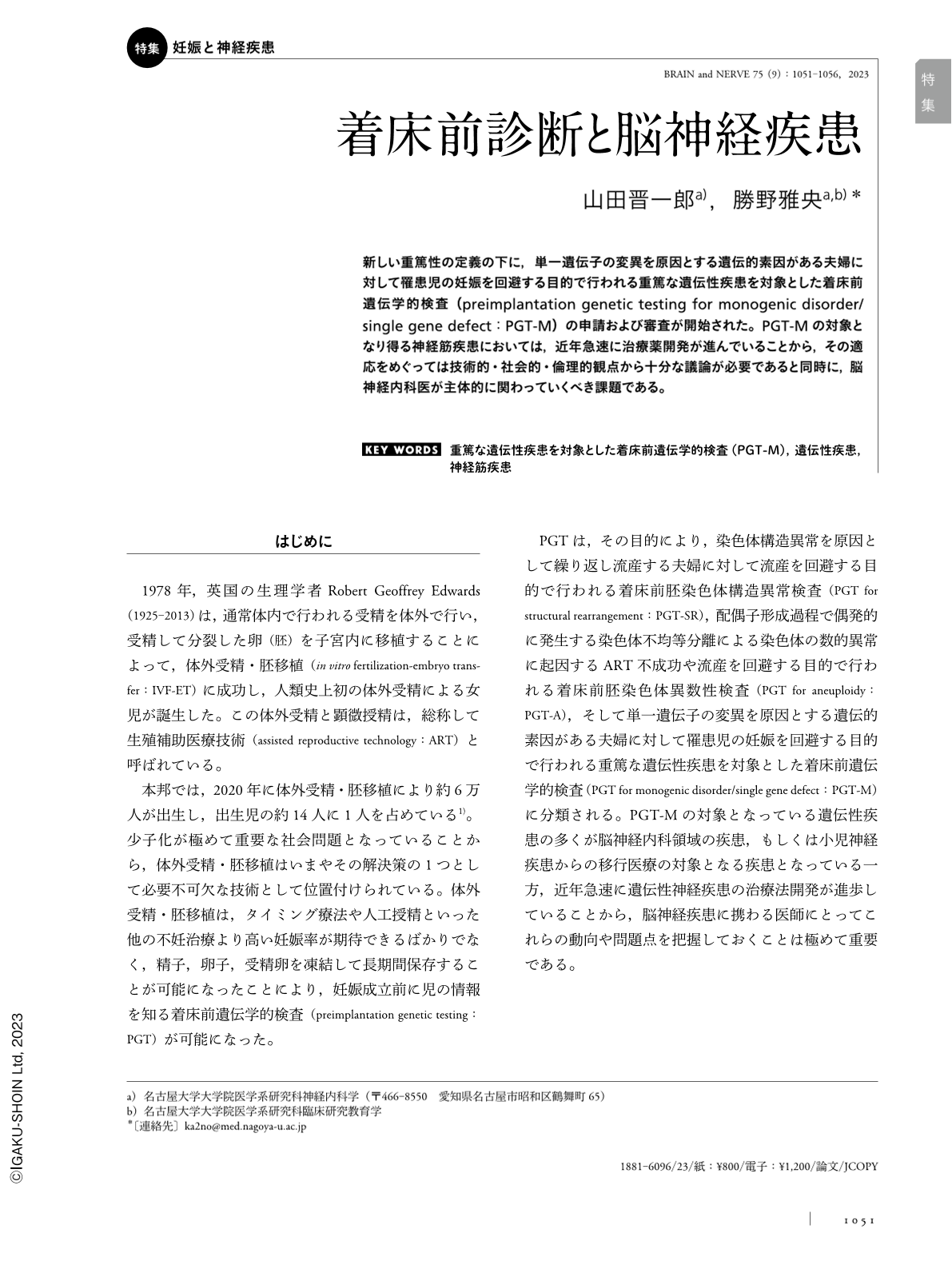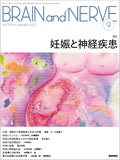Japanese
English
- 有料閲覧
- Abstract 文献概要
- 1ページ目 Look Inside
- 参考文献 Reference
新しい重篤性の定義の下に,単一遺伝子の変異を原因とする遺伝的素因がある夫婦に対して罹患児の妊娠を回避する目的で行われる重篤な遺伝性疾患を対象とした着床前遺伝学的検査(preimplantation genetic testing for monogenic disorder/single gene defect:PGT-M)の申請および審査が開始された。PGT-Mの対象となり得る神経筋疾患においては,近年急速に治療薬開発が進んでいることから,その適応をめぐっては技術的・社会的・倫理的観点から十分な議論が必要であると同時に,脳神経内科医が主体的に関わっていくべき課題である。
Abstract
Preimplantation genetic testing for monogenic disorders (PGT-M) has been implemented in Japan under a novel definition of severity to reduce the chances of giving birth to a child with an inherited genetic disorder. The redefinition of disease severity is not only about changing definitions and interpretations, but also a matter of potentially expanding the number of diseases covered by PGT-M and the range of clients, which could raise serious human rights-related issues. With the rapid development of therapies for neuromuscular diseases and the possibility of the clinical course of diseases previously considered to be serious becoming progressively becoming milder in the future, the “definition of severity” classification itself, as applied to PGT-M, may become debatable. Neurologists will thus become more involved in presymptomatic diagnosis and newborn screening for the early diagnosis and treatment to enhance the efficacy of new therapies. We also need to address the technical, social, and ethical issues surrounding genetic counselling and PGT-M, and practice holistic medicine for the patients and their families.

Copyright © 2023, Igaku-Shoin Ltd. All rights reserved.


